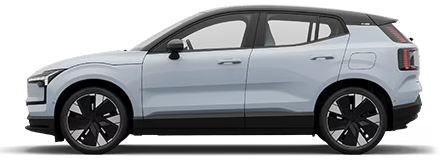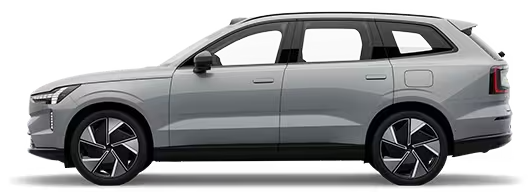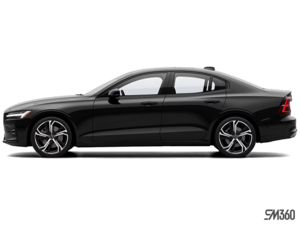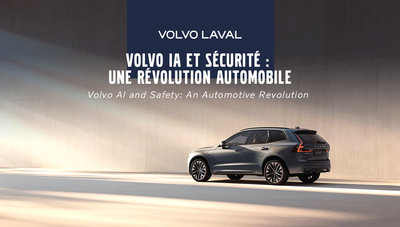Volvo's LiDAR Technology: The Autonomous Driving of Tomorrow
July 10 2020,
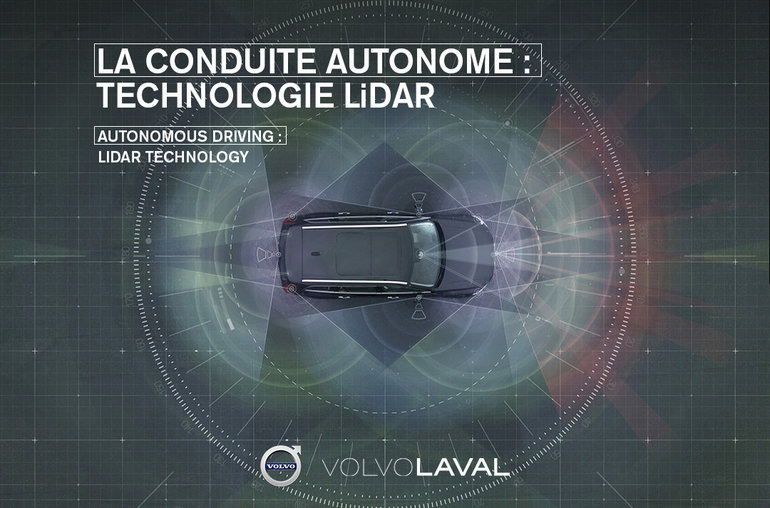
Vision is certainly the most important thing when it comes to the fully autonomous cars of the future. From this perspective, Volvo's vision is therefore one of fully self-driving vehicles that will make our roads safer, give us more freedom in how we use our time and even change the design of our cities. This is the vision of the future explored by the Volvo 360 concept car.
But vision also means sight, of course, and that's just as important, because the success of autonomous cars will depend primarily on their ability to see and perceive the world around them clearly. Being able to tell the difference between a child and a fire hydrant, or seeing a dog and anticipating that someone is probably walking it, are things that we, as human beings, do instinctively. Allowing fully autonomous cars to do the same will create the safe, sustainable and flexible mobility of the future. The technology with LiDAR sensor was born out of this desire to make Volvo vehicles even more independent on the road, and to do so in a safe way.
Volvo Laval near Terrebonne, Saint-Eustache, Sainte-Thérèse, Boisbriand and just minutes from Montreal, shares this view of the future and introduces you to Volvo LiDAR technology.
Laser Guidance: LiDAR Technology
First of all, and this is undoubtedly a self-evident truth, we have eyes to see and a brain to understand what we see. Autonomous cars rely on cameras, sensors and software, of which LiDAR (Light Detection and Ranging) is one of the essential components. This technology works by sending out fast pulses of (invisible) laser light and measuring how long it takes for these pulses to return to their source. This happens several thousand times per second with multiple rays. By combining the system with accurate GPS positioning and the right software, it creates an extremely detailed 3D map of the car's environment in real time.
The image that the system recognizes and sees is known as the point cloud. This mass of luminous coloured dots on a black background is very different from the way we see the world. Yet it's incredibly rich in information and allows an autonomous car to determine its movements—and monitor what's going on around it with great precision.
However, not all LiDAR systems are created equal and to ensure that its autonomous cars will have the best possible visibility, Volvo has partnered with Luminar and invested in this US-based technology start-up which has developed its own state-of-the-art LiDAR technology.
Thus, in partnership with Volvo Cars engineers in California, Luminar has developed LiDAR technology that can see further than many similar systems currently available on the market. It can detect objects up to a distance of 250 metres, which makes a crucial difference in high-speed highway traffic, giving the car more time to react to a potential hazard.
Luminar's sensors also help solve some of the practical problems encountered in the development of fully self-driving cars, such as the ability to easily see dark objects against a dark background and to function properly in poor conditions such as rain, fog and snow.
In short, it is now possible to imagine a future in which your car offers a first-class travel experience, allowing you to spend your time working, sleeping, watching a movie or simply relaxing while it drives for you, in complete safety. This is the future explored by the car manufacturer Volvo 360, an electric concept car, an autonomous driving system created to launch the debate on the positive changes that autonomous cars may bring.
Volvo Laval Thinks Ahead!
LiDAR technology is at our doorstep, and Volvo Laval near Terrebonne, Saint-Eustache, Sainte-Thérèse, Boisbriand and just minutes from Montreal multiplies every opportunity to inform you and keep you up to date on the innovations of the world's safest vehicle manufacturer. Come visit us today and test-drive a new 2020 Volvo, a vehicle for life!





